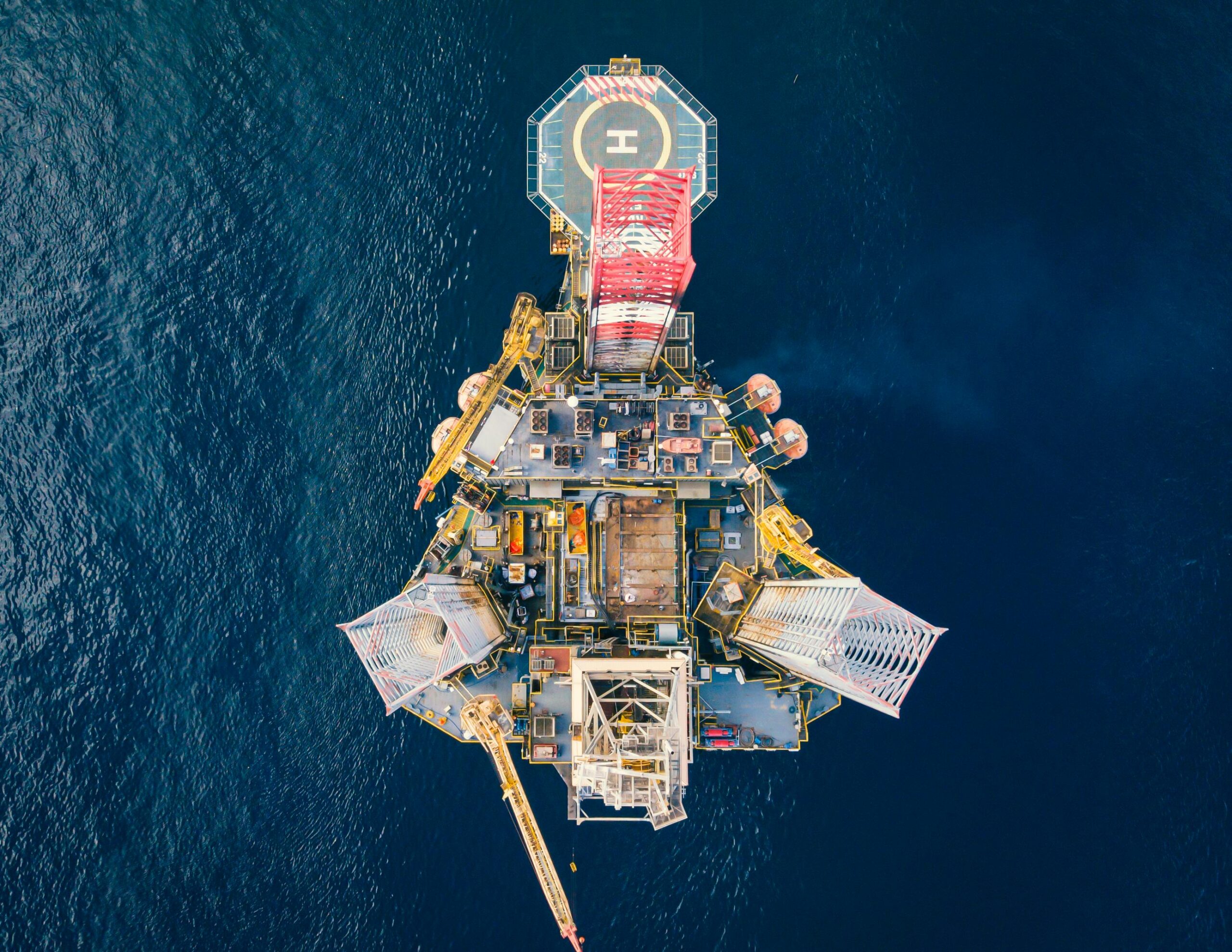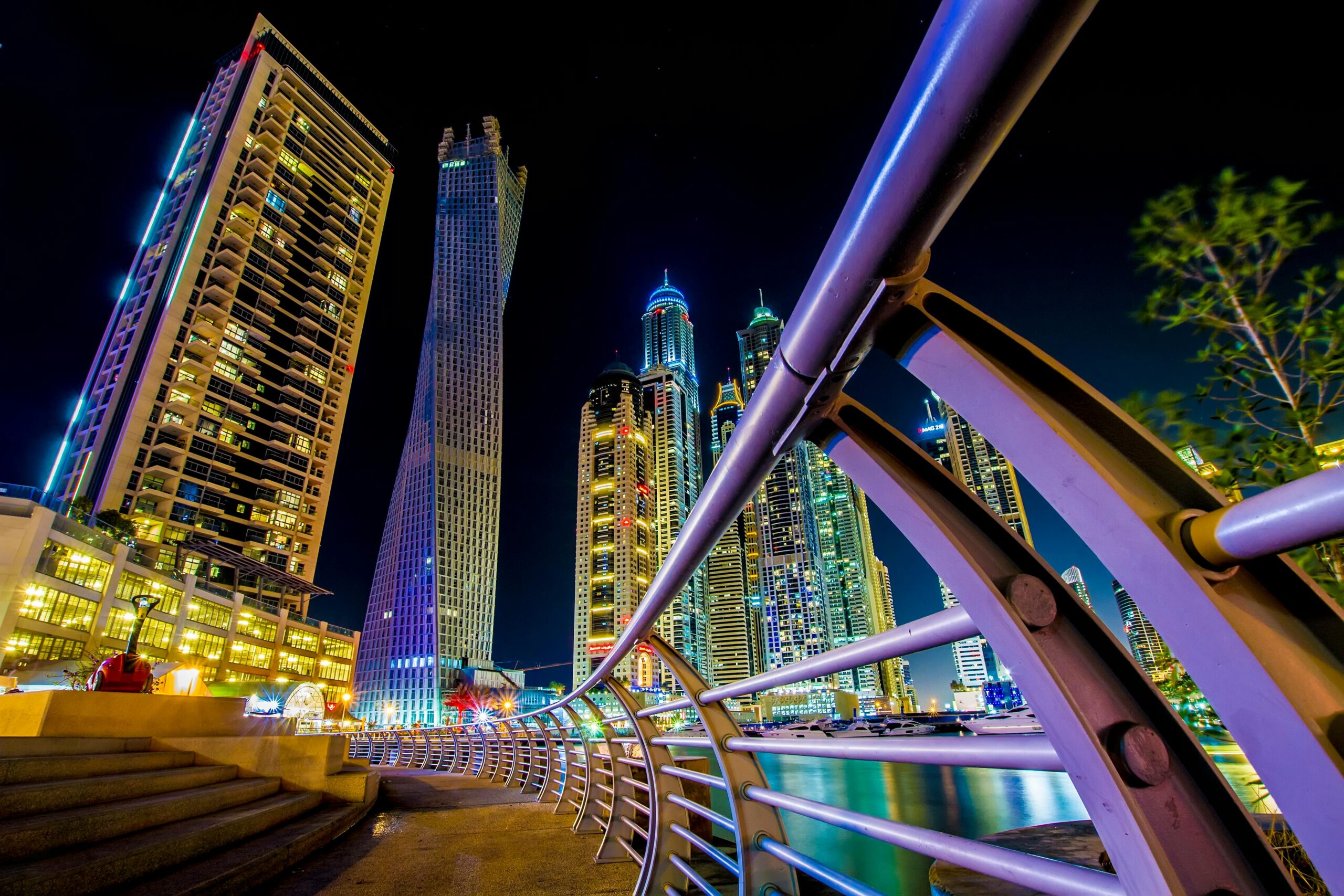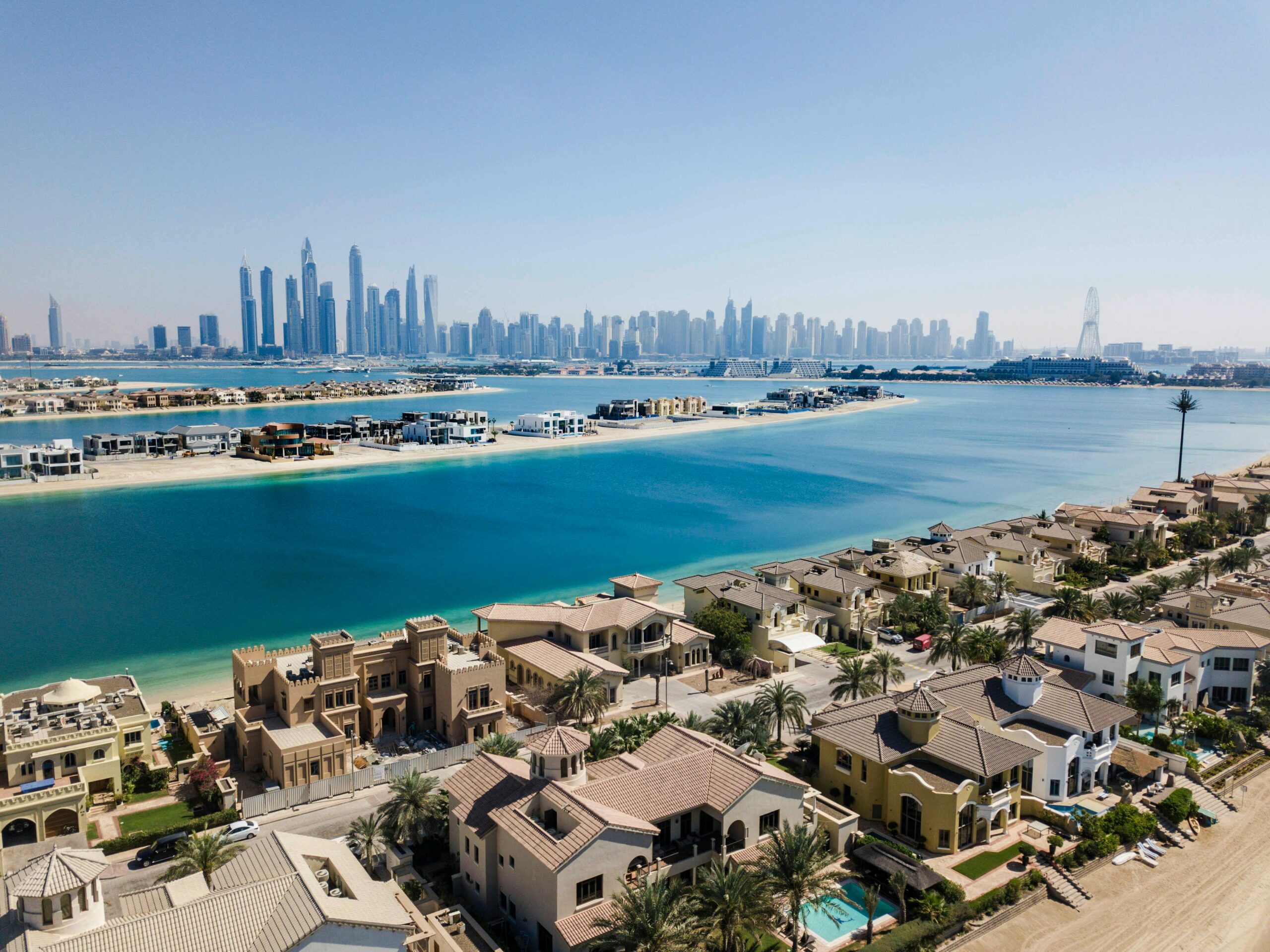- Key Takeaways
- Why Shift From Oil Wealth?
- Dubai’s Diversification Blueprint Unveiled
- Key Pillars of Dubai’s New Economy
- Real Estate: Stability Amidst Change
- Future Outlook: Challenges and Triumphs
- Conclusion
- Frequently Asked Questions
- Why is Dubai moving away from oil as its main source of income?
- What industries are driving Dubai’s new economy?
- How has real estate contributed to Dubai’s economic stability?
- What challenges does Dubai face in its diversification efforts?
- How does Dubai support innovation and entrepreneurship?
- What benefits do residents and visitors see from Dubai’s economic diversification?
- Is Dubai’s transformation from oil sustainable in the long term?
Key Takeaways
- Dubai is starting to move beyond an oil-based economy. This shift is intended to develop economic resilience and promote sustainable growth even with the global oil market volatility.
- The government’s ambitious diversification efforts—fueled by forward-looking policies and investments—are helping the emirate pivot into new sectors, including tourism, technology, trade, and financial services.
- Ambitious strategic initiatives are powering Dubai’s ascendancy as a regional leader. Intelligent city planning and sustainable infrastructure are fundamental to this innovation and smart city, urban development.
- New developments tap into foreign investment, aided by government regulations encouraging foreign buyers and a slew of incentives from Dubai’s government.
- Dubai’s initiatives to become a leader in renewable energy, sustainability, and knowledge-based industries are not only in line with global trends, but bringing new opportunities to Dubai.
- Continued flexibility and cooperation between government and industry is essential. Through these efforts, Dubai will be better equipped to address future challenges and flourish in an evolving global economy.
Dubai’s evolution beyond an oil economy is a remarkable story. Today, due in large part to its location on the trade route between East and West, it glitters as a global trade center.
While Abu Dhabi quickly expanded its economy with oil, Dubai took a different route. Yet early oil discoveries dramatically accelerated not only local job growth, but the construction of new roads, ports and skyscrapers.
That initial oil windfall allowed Dubai to jumpstart its transition to a service-centric economy, laying the groundwork for their vision today.
Why Shift From Oil Wealth?

Even the success story of oil wealth—Dubai—derives its narrative from oil. The city’s leaders realize oil isn’t the future’s only fuel. First, price swings make oil wealth risky. Every boom and bust takes a toll on government budgets, workers’ livelihoods, and long-term development strategies.
Shifting from oil is not easy, but it’s necessary for lasting and robust economic growth.
The Vision for a Resilient Future
Now Dubai has its eyes on building a long-term, diversified economy. The city continues to support initiatives across industries including tourism, logistics, finance and tech.
Dubai Internet City and Dubai International Financial Centre are two well-known examples. Both provide high-paying jobs and attract leading global companies. These changes fit perfectly into the UAE’s larger ambitions.
They vigorously back efforts such as UAE Vision 2021, which seeks to minimize oil’s place in the economic future.
Global Economic Realities
The oil market is anything but stable. A sudden drop in prices can quickly drain coffers and put the brakes on projects. At the same time, demand for clean power is rising rapidly across the developing world.
Wind and solar energy increase efficiency in homes, buildings and factories, and electric cars reduce our reliance on oil. For Dubai, this represents that the past is not sustainable indefinitely.
The city needs to stay ahead of this change in order not to be left behind.
Proactive Government Foresight
Dubai’s political leaders think decades ahead. They enact new regulations and pay for retraining, so more workers are able to transition into other industries.
The central government builds innovation free zones and funds startup incubators. Taken together, these steps move the state toward attracting new business and reducing risk associated with oil’s boom or bust.
By investing capital across a variety of industries, Dubai protects itself from future downturns.
Dubai’s Diversification Blueprint Unveiled
Dubai’s leap beyond oil is the result of decades of long-term vision mixed with audacious risk-taking. Today, Dubai has successfully managed to diminish the role of oil to less than 2% of its GDP. They are placing their bets on a future filled with industries co-habitating.
Through these measures and more, the city’s leaders foster a collaborative environment with private firms, all while committing to smart, sustainable growth and a dynamic local economy.
1. Strategic Policies Fueling Change
Dubai’s leaders instituted policies that would allow other non-oil sectors to flourish. They established targeted free zones such as Dubai Internet City and Dubai Healthcare City.
These areas offer reduced taxation, simplified regulations, and robust backing for startups. The city’s regulations have created an environment where it is easy for foreign investors to set up shop.
Such changes encourage companies to innovate and introduce new concepts from all over the world.
2. Nurturing Non-Oil Sector Growth
Today, tourism, finance, logistics, and real estate serve as the engines for Dubai’s tremendous expansion. Initiatives such as the Dubai International Financial Centre and Dubai Logistic City are prime examples of this.
To help these new startups, the city has offered investment capital, entrepreneurial training, and shared workspaces. Most contracts awarded to foreign companies introduce global best-practice knowledge and development opportunities for local employees.
3. Attracting Global Investment Flows
Dubai has made a real effort to attract international investment. By allowing companies to enter and expand quickly without high upfront costs, free zones reduce barriers to entry.
Flexible regulations and quick trade connections go a long way. Dubai’s trade and investment ambitions are ambitious to double trade and nearly quadruple foreign direct investment flows over the next 10 years.
4. Championing Tech and Innovation
Dubai places technology and smart innovations at the core of its agenda. Innovation, research, science and technology are all heavily promoted by the UAE Vision 2021.
International big tech companies partnered with local tech firms to get initiatives in artificial intelligence, smart health, and green technology expedited.
5. Smart Urban Development Plans
Smart city plans extend beyond just technology to improve the quality of life. Tech becomes ingrained in infrastructure, buildings and overall public service.
From green building regulations to innovative energy efficiency initiatives, Dubai is clearly committing itself to creating a more sustainable, prosperous urban environment.
Key Pillars of Dubai’s New Economy
Dubai’s new economy does indeed rest on a much broader base than oil. With each sector collaborating with the others, Dubai is able to maintain stability and strength even when the world is changing rapidly around them. The combination of heritage and hypermodernity, foresightful governance and international perspective ensures that Dubai’s progress remains unparalleled.
Tourism and Hospitality Thrives
Tourism is central to Dubai’s expansion. The city’s eclectic mix of culture includes traditional Arabian souqs alongside modern day icons such as the Burj Khalifa and Palm Jumeirah. High-profile events like Expo 2020 contributed to increased tourism, welcoming millions and energizing hotels, restaurants, and retail in the process.
Dubai keeps improving visitor experiences by offering year-round events, theme parks, and easy visas for tourists. These moves ensure that global travelers continue returning and provide good jobs for residents.
Global Trade and Logistics Hub
Dubai’s location in Asia, Europe, and Africa makes it geographically located in the center of the globe’s trade. Jebel Ali Port and Al Maktoum International Airport are benchmarks for moving goods quickly. New rail links and smart customs procedures make it easier for companies to ship their products in more efficient ways.
The city’s powerful air and sea links allow businesses to efficiently access markets across the globe. This role as a global trade and logistics hub continues to draw in international trade, jobs, and investment.
Financial Services Powerhouse
Dubai’s financial sector has expanded rapidly with the assistance of the Dubai International Financial Centre. The city is opening their arms to international banks, fintech startups, and investors. New technology, especially blockchain and digital banking, is rapidly shifting the way money travels.
Dubai’s business-friendly regulations and tax incentives lure companies from Europe, Asia, and the United States. This influx of talent has helped to make finance a powerful pillar of the economy.
Rise of Knowledge-Based Industries
Dubai is heavily investing in developing new tech, education and research. Dubai fosters a skilled workforce via world-class educational institutions and partnerships with international universities. Projects in AI and clean energy, like the Mohammed bin Rashid Al Maktoum Solar Park, show how new ideas drive growth.
Collaborating with schools and research institutions helps ensure that Dubai’s workforce is always equipped to be first with what’s next.
Real Estate: Stability Amidst Change
Dubai’s real estate market is unique in its strength amid such change. Even when the global economy turns upside down, this sector is stable. Robust regulations and transparent processes established by the federal government are essential to this stability.
Policies today focus on increased transparency and better protections for investors. This strategy is designed to help prop up prices and reduce risk. Coupled with its reputation as a safe haven, Dubai’s boom lures buyers from across the world.
With its booming population, the need for residences and workplaces is exploding!
Infrastructure’s Role in Growth
Massive investment in roads, ports, and airports has built the foundation for Dubai’s meteoric ascent. Completed projects such as the Dubai Metro and a constant renovation of the city infrastructure keeps mobility quick and attractive.
This continues to attract more residents. In all, the city’s fiscal plan calls for expenditures of AED 272 billion during 2025–2027. This investment will enable the development of thousands more homes and unlock previously inaccessible areas of the city.
This continues to keep the market active and ensures that our neighborhoods are continuing to grow in smart, green, efficient ways.
Real Estate Market Dynamics
Dubai’s real estate landscape evolves as the influx of human capital and economic opportunity continues. A blistering pace of transactions—nearly 39,000 within only the second quarter of 2024—illustrates just how hot this market is.
The gap between what’s built and what’s needed stays close, with new projects matching demand from both locals and newcomers. Foreign buyers have become a major influence, injecting new money, new ideas, and sometimes a more global perspective.
Government Support for Property Sector
Recent legislation and the administration’s new green building agenda call for equitable pricing and environmental sustainability. These actions ensure that the market remains safe and fair for all Americans.
Fostering affordability for new homes allows more people to own properties, but rigorous oversight on transactions ensures that the quality is never compromised.
Foreign Investment in Dubai Property
This influx of foreign capital has provided Dubai a competitive advantage. Tax incentives, plus the fact that non-locals are granted full property rights, make it convenient and attractive to own.
This combination fuels new development and continues to support robust property values.
Future Outlook: Challenges and Triumphs
Beyond the surface, Dubai is undergoing a tremendous transformation. Now, the city is trying to make a move toward getting away from oil as its primary source of revenue. This historic transition presents new challenges and new opportunities.
This new push for economic development has relied heavily on innovation, new models, a new paradigm, a new focus on the triple bottom line. Big test ahead for Dubai. Success in adapting to a world where oil is not the focal point will still require the city to be fast, intelligent, and agile to disruption.
Embracing Sustainable Development Goals
Dubai’s leadership has made ambitious commitments to build a cleaner, greener future. Their Energy Strategy adopted by 2050 aims to increase the share of renewable energy in the final energy consumption to 44%.
Projects like the Mohammed bin Rashid Al Maktoum Solar Park show how the city is serious about cutting down on carbon. These initiatives help position Dubai as a desirable location for firms around the world who value environmental responsibility.
Their work doesn’t stop with the environment—it helps attract the right investors looking for a place to invest their dollars so they can have an impact.
Navigating Geopolitical Landscapes
Dubai’s unique position as a hub between the East and West—resulting in geographic advantage for trade—has played a role in Dubai’s success. It is precisely this global connectedness that requires the city to manage its own booms and busts on the geopolitical scale.
Strong relationships with other countries are vital to maintain the flow of federal dollars and ensure trade flows freely. Ultimately, Dubai’s success will hinge on how well the Emirate remains aware of external dangers and has contingency plans in place should tides turn.
Future Economic Opportunities
To bring in the next wave of growth, the city is betting on the tech, healthcare and tourism sectors. Focusing on improving the experience for businesses and consumers by leveraging technology like AI, blockchain, and IoT is a win-win.
These changes both create new jobs and enhance the stability of the city’s overall economy.
Cultural Evolution and Growth
The pace of Dubai’s expansion has been synonymous with a shift in the cultural fabric of the city. Heritage tourism, including art, music, and African American history, has been one of the largest growth areas.
Initiatives such as Expo 2020 have placed Dubai firmly on the global stage and continue to inspire fresh connections amid developing cultures.
Conclusion
Dubai continues to race ahead, constantly seeking out new opportunities for development. The city isn’t simply sitting pretty on oil cash. Now tech, trade, tourism, and real estate are center stage. Stroll through Downtown Dubai and experience the latest fintech startup next door to a spice market that’s been there for decades. Witness giant cranes altering the skyline—change is a daily occurrence here! Dubai’s big gamble pays off on a brave vision, welcoming spirit and smart city blueprint. The road ahead may be long and bumpy, but the city’s determination to overcome business as usual provides a strong compass heading. Interested in learning more about how Dubai is writing its next chapter? Stay tuned to find out what’s coming next from the Gulf’s busiest city.
Frequently Asked Questions
Why is Dubai moving away from oil as its main source of income?
Dubai’s transition away from oil is a bid to ensure a more stable future. Oil reserves are finite. This diversification is key to the city’s goal of creating a long-term, resilient, sustainable economy while attracting investment from around the world.
What industries are driving Dubai’s new economy?
Tourism, real estate, finance, technology, and logistics are all driving Dubai’s rapid economic growth. These sectors not only contribute to international recognition of the city, they bring jobs, innovation, and investment to the city.
How has real estate contributed to Dubai’s economic stability?
As we have seen, Dubai’s real estate sector provides a stable source of income, while drawing foreign investors. Iconic projects, such as the Burj Khalifa, not only significantly increase tourism but serve as a catalyst for other industries.
What challenges does Dubai face in its diversification efforts?
Yet, Dubai now faces the challenge of global competition, the need to continue attracting investment, and growing environmental concerns. Learning from outside their bubble and adapting to rapid changes is imperative for their long-term success.
How does Dubai support innovation and entrepreneurship?
Beyond that, Dubai has made investment in technology parks, free zones, and startup programs that cater specifically to foreign innovators. Together, these initiatives make it easier to start and grow a business, bringing the world’s best talent to Dubai’s doorstep.
What benefits do residents and visitors see from Dubai’s economic diversification?
Visitors benefit from improved connectivity, modern amenities, and hospitality options. Residents benefit from world-class infrastructure. Residents experience a safe, highly modernized, cosmopolitan city with unique attractions and services.
Is Dubai’s transformation from oil sustainable in the long term?
Dubai’s focus on sustainable industries, smart city initiatives, and renewable energy projects aims to secure its future well beyond oil.



